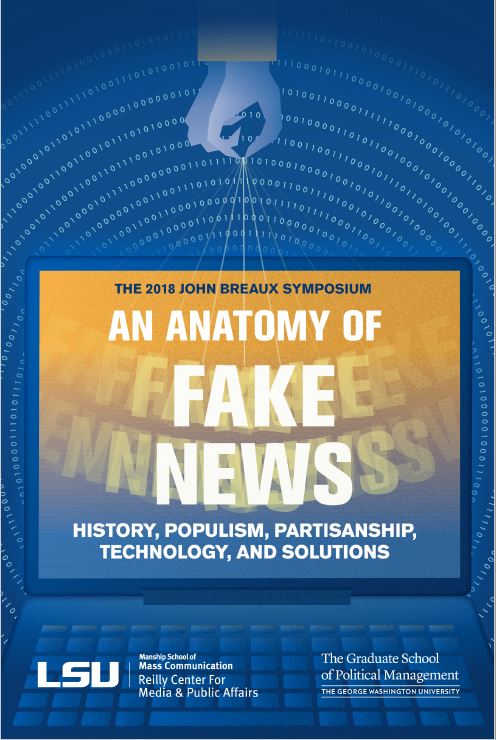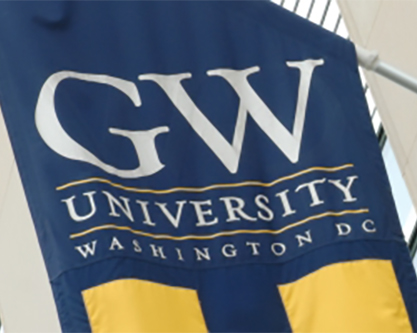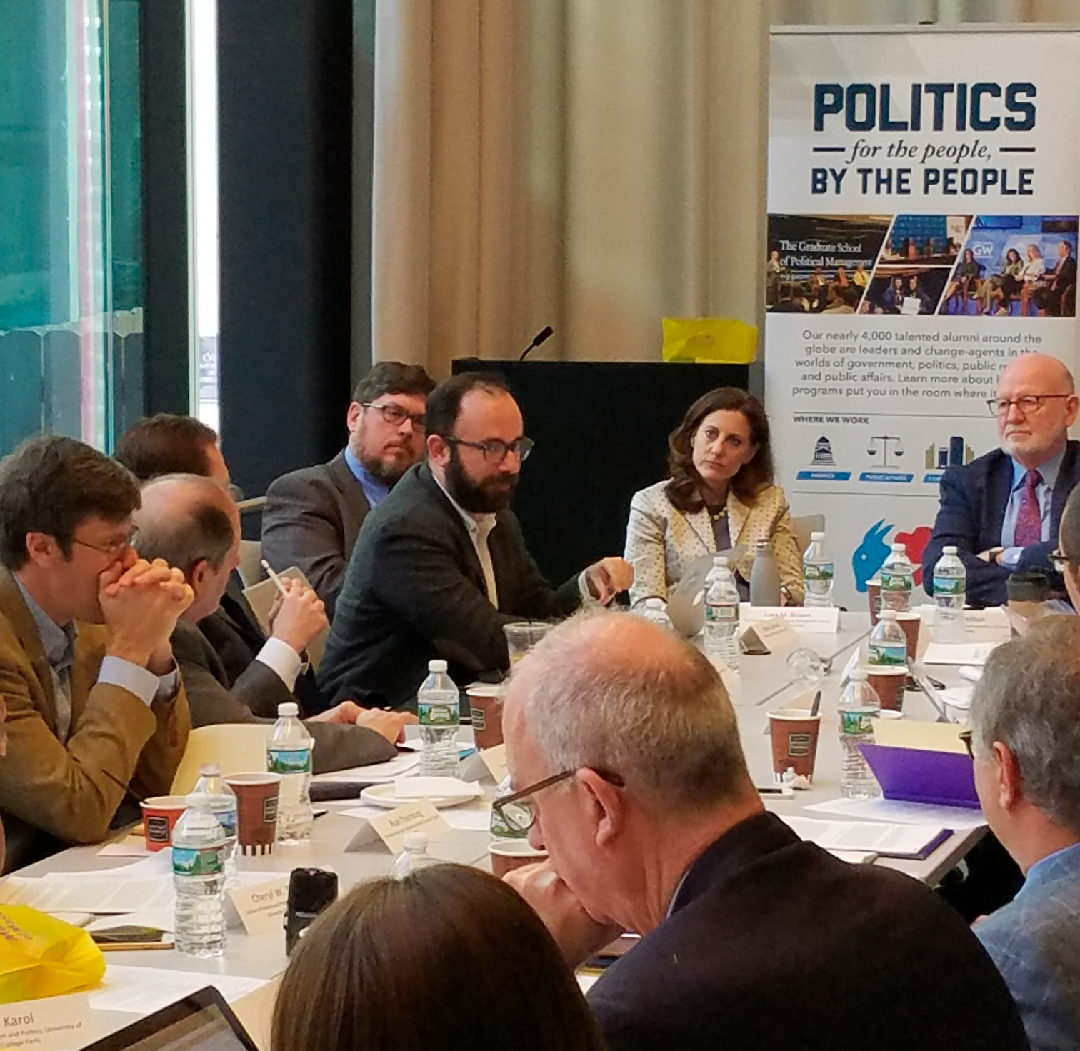Anatomy of Fake News
Watch the sessions below
An Anatomy of Fake News: A Modern History
Session 1
Paper by Heidi Tworek, Assistant Professor, University of British Columbia (Vancouver)
and
Jack Hamilton, Hopkins P. Breazeale Professor of Journalism,
Manship School of Mass Communications, Louisiana State University
Lead discussant: Tom Rosenstiel, Executive Director, American Press Institute
Populism in America, Then and Now
Session 2
Paper by Jay Cost, Contributing Editor, Weekly Standard and Author, A Republic No
More:
Big Government and the Rise of American Political Corruption
Lead discussant: Sid Milkis, White Burkett Miller Professor of the Department of Politics
and
Faculty Associate at the Miller Center, University of Virginia
The Changing Institutional Role of the Parties;
Technology and the News Media
Session 3
Session 3 paper by Elaine Kamarck, Founding Director, The Center for Effective Public
Management & Senior Fellow,
Governance Studies, The Brookings Institution
Session 3 lead discussant: David Karol, Associate Professor, Department of Government and Politics, University of Maryland (College Park)
Session 4
Session 4 paper by Jonathan Albright, Director of Research, The Tow Center for Digital Journalism, Columbia University
Session 4 lead discussant: Ryan Thornburg, Director, The Reese News Lab, and Reese Felts Distinguished Associate Professor, University of North Carolina (Chapel Hill)
Weighing the Solutions
Session 5
Len Apcar, Wendell Gray Switzer Jr. Endowed Chair in Media Literacy & Fellow,
The Reilly Center for Media and Public Affairs, Louisiana State University
Michael Cornfield, Research Director and Associate Professor,
The Graduate School of Political Management, George Washington University
Paul Mihailidis, Associate Professor Department of Journalism, Emerson College



